Both Sides, Part 4 : We Are The Sides
A question: What are the two sides in “both sides,” anyway?

Note: this essay was originally published on Revue on November 6, 2021.
This is the fourth part of a thing—the final part.
Let’s go.
I’ve been doing this for four weeks in a row now. That’s quite a long time. Thanks for your indulgence.
I imagine it does seem rather indulgent, that I would devote four consecutive segments of my creative output musing, almost obsessively, on a single topic.
I’m reassured, though, to realize that Dave Chappelle fans, at least, are sure to be OK with this sort of thing.
And I imagine these installments would make a bothersome read for, say, Republican Texas lawmakers, who are so committed to their ahistorical version of our nation’s history that they’ve mandated its teaching, by forcing teachers to present the opposing perspective of any “controversial” subject, which in practice means subjects that they think might make white people uncomfortable.
Any white people? Any subjects? Oh yes. Any white people. Any subjects.
But Chappelle and our Texas schools were only windows, really, into the actual topic, which is the idea of sides. Particularly the idea of both sides, which is the great narrative formulation of our age.
You know. Both sides. The two sides. The only two. The two sides you have to consider, because if you don’t consider it, and never reject it, aren’t you being the closed-minded one, really?
Both sides. Two.
Name the two sides.
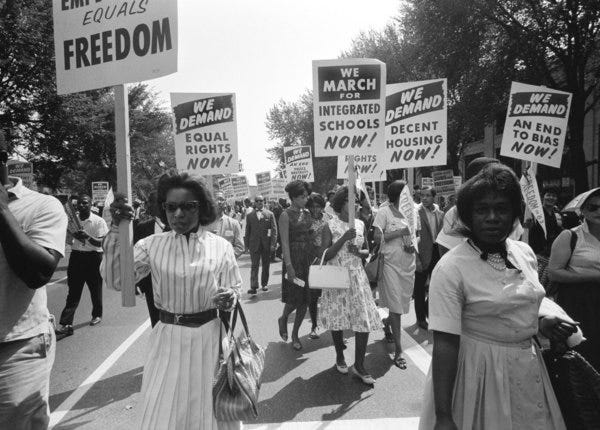
Scenario 1: You are in a meeting. You say somebody’s name. They correct your pronunciation. You use the correct pronunciation from then on, as does everyone who overheard the exchange.
Scenario 2: Somebody tells you that something you said hurt their feelings, and asks you to refrain from saying such a thing again. You apologize, then ask if there are phrases you might use in the future to avoid giving pain or offense. You take their recommendation, as does everyone who overhears the exchange.
Scenario 3: A bicycle lane is painted on the side of the road you use in your daily commute. You stay in your lane, watching out for bicycles as you go.
Scenario 4: There is a global pandemic. Based on guidance from leading global epidemiologists, you’re asked to wear a mask and get a vaccine. You do this.
Perhaps you agree with me that I’ve just described a group of mature people working out solvable problems.
And you can tell that’s what they are, because they act for the accommodation of others, or to make sure that everybody in the scenario has space or license to be heard, rather than for their own exclusive accommodation, or to insist that only they be given space and voice.
You can also tell because what they are accommodating, in all cases, is the introduction of a new perspective or person, in favor of their own.
They might not have intended harm. They might not have been aware of the harm done. Perhaps they were even confused by misinformation. They might not even have been responsible for the initial harm. But they do receive knowledge of it, and they listen.
They have been given an opportunity to become a less hurtful and more aware person, and they accept that opportunity.
So, you see, we can discern intent after all.
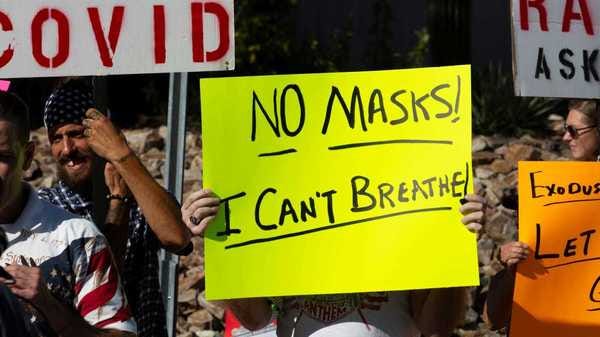
Back in Part 1 of this exercise, I named the two sides.
I did it wrong—on purpose. I left it incomplete, without saying I was doing so. I did that so I could complete it here, at the end.
I observed that the standard way of looking at “both sides” was to frame it around whether or not somebody agreed or disagreed with a proposition, and pointed out that this framing erased the person directly affected by the proposition, and advantaged the person who wanted to keep the proposition in circulation forever.
I then postulated that a better way of framing “both sides” was along the lines of those who are affected and those who aren’t affected.
I think that’s a better framing, for sure.
We should use that framing.
But it’s still the wrong framing.
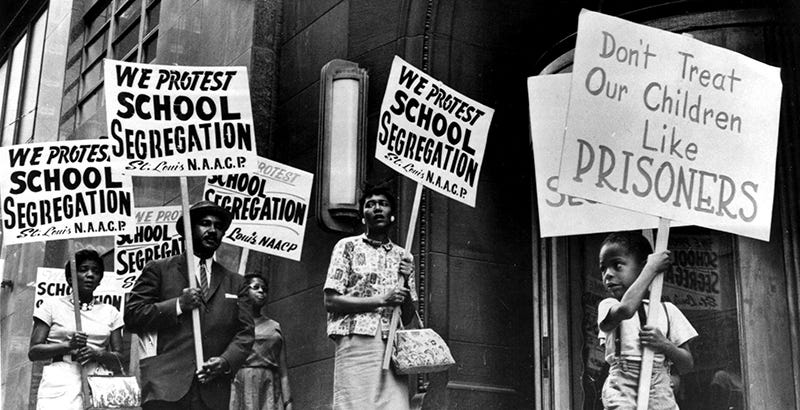
Both Sides
Scenario 1: You are in a meeting. You say somebody’s name. They correct your pronunciation. You refuse to use the corrected pronunciation and instead complain loudly that everyone has such weird names these days and it’s all too impossible to remember. You use the wrong pronunciation repeatedly, smirking while you do it. When somebody else uses the correct pronunciation, you mock them for being so sensitive and cowed by other people’s emotions. Eventually other people start using the wrong pronunciation, as well.
Scenario 2: Somebody tells you that something you said hurt their feelings, and asks you to refrain from saying such a thing again. You tell them you never said that, and if you did say it then you didn’t mean it that way, and they should have known you didn’t mean it that way, and if they got their feelings hurt that’s actually their fault, and that they actually have hurt your feelings, and that their complaining about what you said makes you want to say those things even more, and in fact is the reason people say those things in the first place. Others, hearing this, learn to keep quiet when you say these things.
Scenario 3: A bicycle lane is painted on the side of the road you use in your daily commute. You drive in it, resenting the stupid peddlers who are stealing some of your space, and only swerve out of the way at the last minute, to show them they’re unwelcome. Bicyclists report that this is a frequent experience for them. Many bicyclists are struck and killed.
Scenario 4: There is a global pandemic. Based on guidance from leading global epidemiologists, you’re asked to wear a mask and get a vaccine. You absolutely lose your marbles. You scream that this request is exactly as if Nazis are hauling you off to death camps. You picket vaccination locations and scream at health care workers and make Nazi salutes at local school board members. You take to the radio waves to spread lies you heard from like-minded people, convincing others to behave as you do. You catch the virus, and spread it to hundreds of other people, dozens of whom die.
Perhaps you’ll agree with me that I’ve just described a toxic passel of facile assholes.
And you can tell, because they act not for the accommodation of others, or to make sure that everybody has space or license to be heard, but for their own accommodation, and to insist that only they be given space and voice.
You can also tell because what they are resisting, in all cases, is knowledge. They oppose the introduction of a new perspective, in favor of their own.
They might use the language of inclusion and open-mindedness to frame their argument, but they are enforcing one perspective—their own.
They might not have intended harm. They might even not have been aware of the harm done. Perhaps they were even confused by misinformation. They might not even have been responsible for the initial harm. But they receive knowledge of it, and they refuse that knowledge.
They have been given an opportunity to become a less hurtful and more aware person, and they declined.
So, you see, we can discern intent after all.

A thought: What if there aren’t two sides? What if there are many?—almost infinite in number, and not oppositional, but cooperative?
What if there aren’t two sides, but many?—all working in a spirit of I Might Be Wrong and I’m Sorry About That and I’ll Do Better Next Time?
What if, as a result of all this, we aren’t just suddenly more sensitive as a society, but much more aware? What if there are tens of millions of us, acting in a spirit of growth and improvement, a shared understanding that all human beings are intrinsically valuable in and of themselves, considering a truly extraordinary array of lived experiences, and increasingly aware of the ways our current societies structures and assumptions have failed?
What if there is, as a result, a momentous shift transpiring, right now, a massive explosion of voices heard, as people take back their own rightful license to exist as themselves, and to bestow cultural and social license, as others try to listen and learn and change and improve?
Think of all the different things we’re learning about how to live together, how to best honor the essential humanity of one another.
Think of all the different perspectives available. Think of the complexity. Think of how much work there is to do in order to be a society that arranges itself not around enforcing a single default way of being human, but embraces the full spectrum of what being human can be.
Think how much we’ll learn.
Think how much we’ll improve.
Think of the challenge of it. Think even of the inconvenience, the accommodation we’ll all make, as we make room in areas where we’ve been given a surplus of space, for those who have been given none. Think of how much more we’ll have to listen, to live peacefully in a society where so many different types of people exist.
We might never stop learning.
We might never stop improving.
We might never stop being wrong. We might never become blameless.
Think how much better that will make us.
Think of how many more voices will be heard. Think of how many accomplishments will become possible, as people who never had opportunity gain it. Think of the lives extended and saved.
Now think of the people who don’t want to participate in that—and more, who don’t want anybody to participate in that.
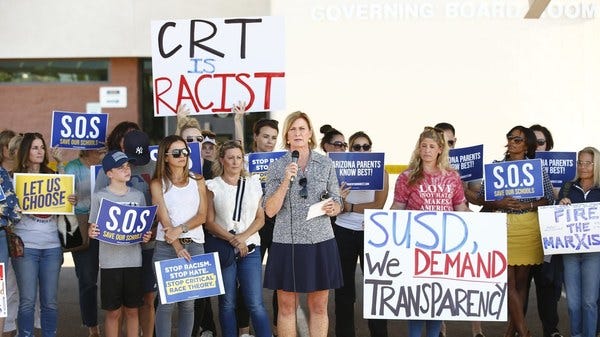
Think of all the people who would rather just not listen, and not learn about ways to live that would make it easier for other people to live, all in defense of their own perceived right to do as they please, without ever being “oppressed” by receiving knowledge of their impact on others.
Think of all the people who treat even the suggestion that they might have harmed somebody—or spoken incorrectly, or benefitted from an unjust configuration of society—as an unforgivable assault on their character and their freedom, one that demands a retributive response.
Think of the people who consider even the mention of the existence of other types of people to be disruptive and disturbing.
Think of how angry people get because of pronouns in your bio.
Think of the people who consider the slightest accommodation offered by somebody inside their definition of “normal” to somebody outside their definition of “normal” to be an unacceptable cultural sacrifice and a sign of calamity and ruin.
Think of the people who even frame the mention of other holidays as a war against their holiday.
Think of the people willing to do anything to avoid receiving knowledge about any injustice, any wrong, that might impugn their own sense of blamelessness and call them to some action. Think of the people willing, even eager, to see power enact violence on their behalf to prevent the transmission of such knowledge. Think of the people willing, even eager, to enact such violence themselves.
Think of the people willing to let them enact such violence, who treat these dark desires as acceptable and sympathetic, even normal.
Think of the people whose perspective is that they are the only side that matters, and that all other people, by insisting on taking equal place in our society, by insisting that their perspective also be heard, by insisting we deserve to live, and you are making that difficult, are an existential threat.
Is this one of the two sides?
Is this half of the entire ideological equation here?
Think of how much we’ll miss.
Think of what we’ll fail to learn.
Think of the improvement that won’t happen.
Think how far behind we’ll fall.
Think how much more stagnant this makes us.
Think of the voices we’ll never hear. Think of the accomplishments we’ll never see.
Think who will be harmed. Think who will be killed.
Think how difficult we will make life for so many people, by making them one “side,” all in service of prioritizing the comfort and convenience of the other “side"—and by "we” I mean those of us who have the license to make such a prioritization, because we happen to be on the “side” sharing that convenience and comfort, because we aren’t the one targeted and threatened.
Do we have to endlessly debate the notion “no we don’t have to listen to other people, and no we don’t have to change”?
Do we have to endlessly consider the proposition “We are already exceptional, and we will only accept statements premised in our exceptionality and our supremacy”?
That’s both sides?
That’s open-minded?
Pardon my Sanskrit, but fuck that.
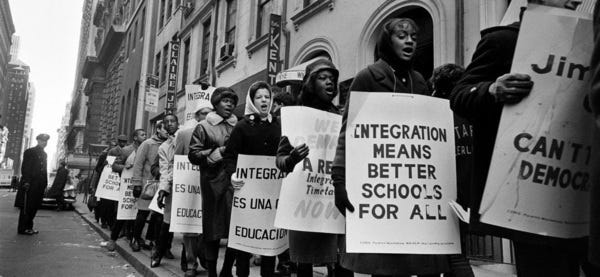
What if the biggest lie of “Both Sides” is the idea that this wide-open acceptance of the spectrum of human experience is only one side, and that people who refuse to engage in any growth and change, in defense of their own blamelessness, get to position themselves as the other side, in order to subsidize their failed positions that were once beyond reproach?
That’s where we are right now. That’s how our culture sees Both Sides.
Netflix, for example, wants to be seen as inclusive to a wide spectrum of human experience, and it also wants to be seen as giving voice to people who greatly resent the moral demands that come with the existence of certain types of people, and to enforce against any dissent of their corporate desire to do. They’re attempting to bridge that divide, and it’s making them seem like they’re having a nervous breakdown.
They’re not alone.
White conservatives, too, want to be see as good, pure of heart, free of racial bias—because racism is bad is the idea that enjoys popular license—but they also want to be sure that their children are able to pass through white supremacy indoctrination channels without the danger of exposure to the Black people’s perspectives on how this country has treated Black people, and so they are enforcing ignorance in public schools, using the same power structures that they insist don’t exist to enact it. And, as a result, many public schools are starting to seem like they’re having a nervous breakdown.
They’re not alone.
Believing a lie has this effect.
And “both sides” is a lie.
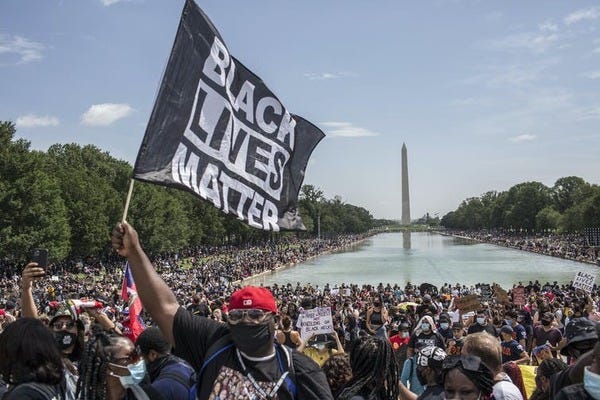
When people engage with a spirit of blamelessness and domination, they have a completely different mission—an unacceptable one. Our mission is honoring everyone’s basic humanity. That spirit isn’t a side in that. It’s an obstacle.
The problem with even talking about “both sides” is, it promotes people acting with abusive intention and a politics of domination to a state in which they are one of two equal “sides,” with literally every other way of being human lumped together as the other “side.”
The problem with even talking about “both sides” is, it validates the worldview of people with abusive intention and a politics of domination as an acceptable outcome, and so they win before you start simply by accepting their premise of only two sides.
The conversation immediately stops being about figuring out how best to honor the essential humanity and basic needs of everyone, and becomes about which people to exclude, pragmatically speaking.
The idea there are only two sides, and they are one of them? That’s their framing. It’s a lie. Listening to only two sides? That’s kid’s stuff. We don’t have time for that. We’re listening to too many other sides, and we’re not interested in leaving any of them out.
Which is why—if you want unity—you mustn’t treat all “sides” working toward the goal of a just and equitable world as an equal “side” to the people who are being active intentional obstacles to that goal to preserve their own blamelessness and advantages. Which is what makes people who do so in the name of “unity” so toxic.
If you engage “both sides” in this way, you are actually aligned with a politics of domination and abuse, even if you are arguing against the politics of domination and abuse.
I’ll repeat that: even if you are arguing against.
If you accept their frame, you’ll always be inside their picture.
So don’t. Paint your own picture.
When you argue, argue better.
Use words, if necessary. Use actions where you can.
What actions? Listening, learning, growing, changing, accommodating: on behalf of making more space, not less, for more people, not less; on behalf of hearing more voices, not fewer; on behalf of other’s position and place, not your own—"others" defined by whether or not you are affected by the issue, not whether or not you agree.
Understand you’re not arguing with one of two “sides” that must unify, but on behalf of all sides, against obstacles to the mission of unity.
Behave accordingly. Reject the notion of “both sides” entirely, and reject the arguments made from it categorically. Use what license you have to cancel that license. Pitch your argument from there.
Listen: All of us, trying to figure out how to honor everyone’s basic humanity? We are the sides.
We are the sides.
And we’re listening to each other already.
Except, of course, for those of us who aren’t. That’s our choice, but it doesn’t deserve equal consideration, or any consideration at all, actually. It’s a failed perspective, and if it won’t fail by itself, it should be made to fail, by those who bestow license.
And who bestows license? You and me, that’s who. Those of us who have some measure of control over another person’s reputations, relationships, and careers.
In other words: family, friends, employers, employees, colleagues, customers, patrons, fans, audience, hangers-on, and hot dog vendors.
Where we can, how we can, whenever we can.
When somebody with a disability explains to an able-bodied person that something they’ve said or done makes their life more difficult, and that able-bodied person adjusts their behavior, do you know what that is? That’s two sides reaching across the aisle to compromise and find solutions. A thing people claim to want.
When somebody who is nonbinary explains to someone who is cis that people declaring their pronouns makes their lives easier, and then the cis person puts their pronouns in their bio, and starts using the nonbinary person’s true name and pronouns, do you know what that is? That’s civility in the discourse. A thing people claim to want.
When somebody who is Black explains structural punitive racism inherent in policing, and asks someone who is not Black to support their goal of defunding the police in favor of more appropriate systems, and the person who is not Black doesn’t scold them for having a bad slogan, but rather puts their qualms aside to help pursue a bold mission, do you know what that is? That’s unity and solidarity. A thing people claim to want.
People of abusive intent acting in spirit of blameless domination aren’t a “side.” They are an obstacle. You want unity? Good. Us too. All the sides, trying to unify. But we have obstacles.
You want unity? Stop giving license to obstacles.
If you have an eye for spirit, you can tell a side from an obstacle.
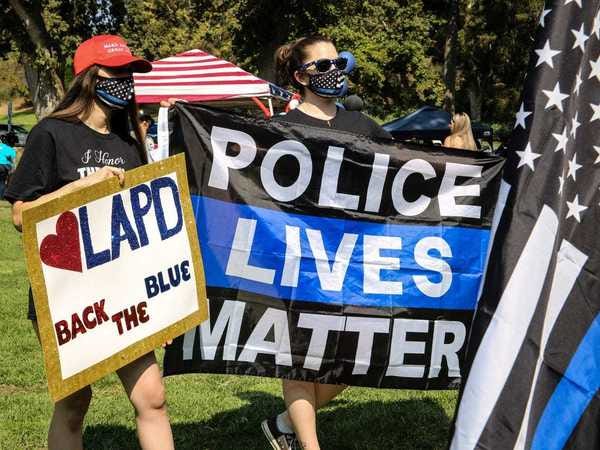
Final questions:
What if we got very good at recognizing an argument that was an obstacle, a spirit that was Beyond Reproach, and simply refused to license it?
What if we stopped closing our minds by listening to both sides, and opened our minds fully to all sides, which includes literally everyone, except those who, of their own choice, have refused to participate, except those who can choose at any time to participate simply by doing so?
What if we only debated the complex and infinitely varied question of how to create a world that made space for everybody, and categorically rejected any questions about whether to do so?
Debate can be an excellent tool for curious people of good faith and intentions to refine ideas and come to new and better conclusions.
But it makes a horrible and destructive competitive weapon.
It shrinks the world to two sides.
But humanity is infinite sides.
And also only one.
That’s the framing.
The end.
_____
A.R. Moxon is the author of The Revisionaries, which is available in most of the usual places, and some of the unusual places. He lost his shape, trying to act casual.

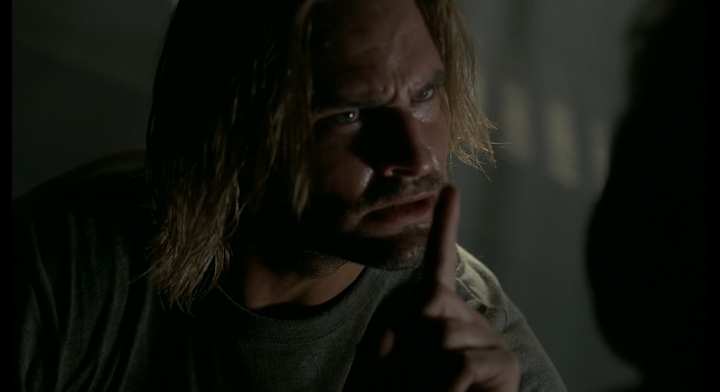
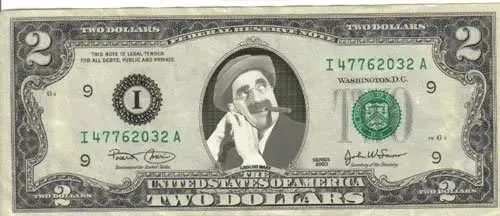
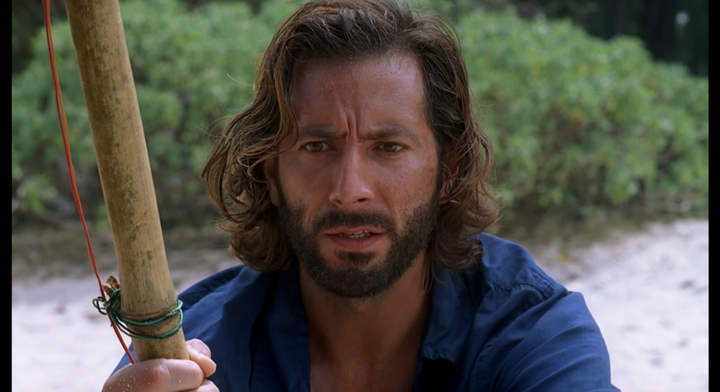
Comments ()